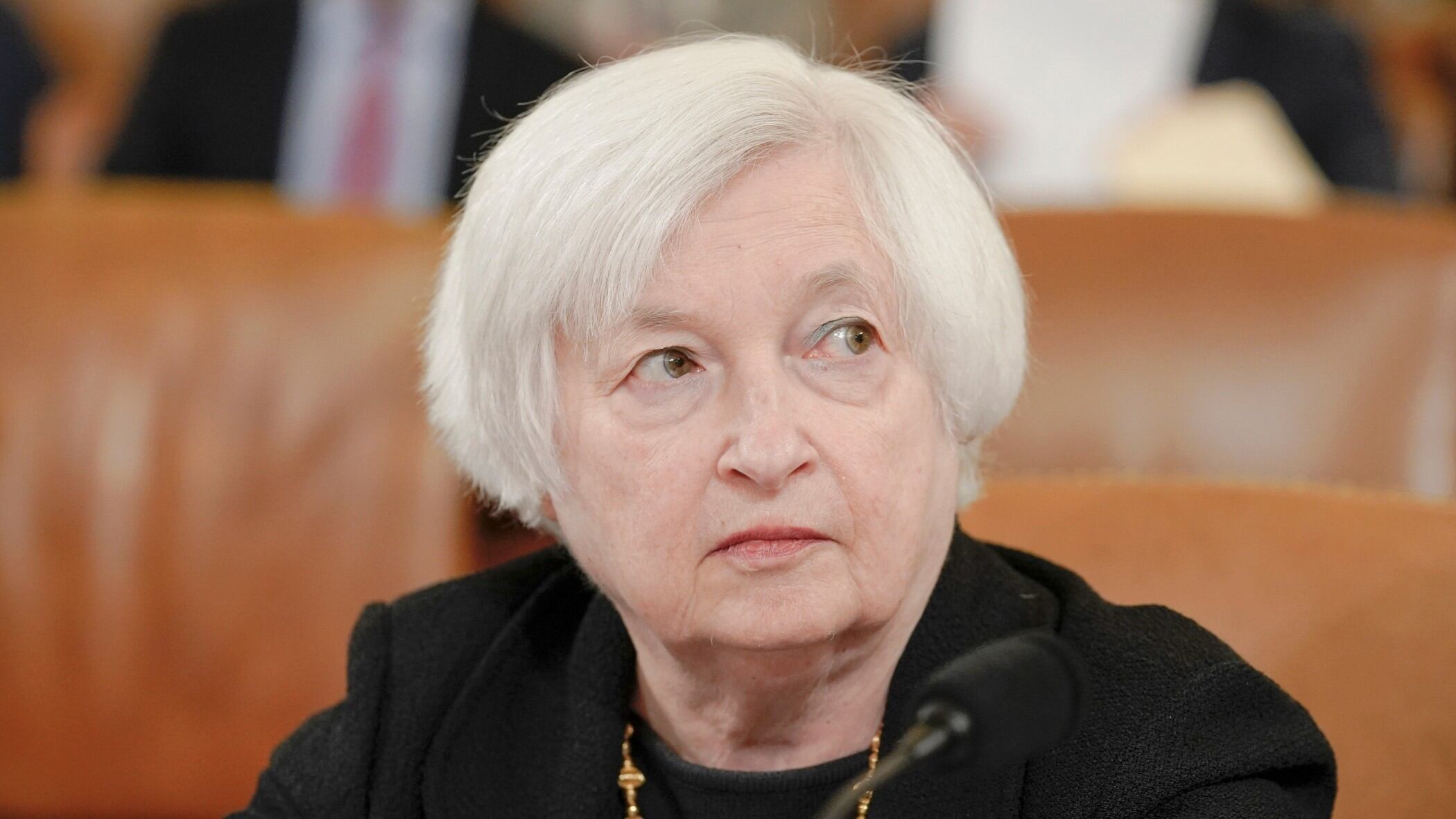Treasury Secretary Janet Yellen warned Tuesday of potential global economic damage from rising tensions in the Middle East and pledged that the U.S. and its allies won't hesitate to use their sanctions powers to address Iran's "malign and destabilizing activity” in the region.
She made her remarks ahead of this week's spring meetings of the International Monetary Fund and World Bank, saying Iran's weekend missile attack on Israel “underscores the importance of Treasury’s work to use our economic tools to counter Iran’s malign activity.”
She added: “From this weekend’s attack to the Houthi attacks in the Red Sea, Iran’s actions threaten the region’s stability and could cause economic spillovers.”
Iran's missile attack on Israel early Sunday came in response to what it says was an Israeli strike on Iran's consulate in Syria earlier this month. Israel’s military chief said Monday that his country will respond to the attack, while world leaders caution against retaliation, trying to avoid a spiral of violence.
As the IMF and its fellow lending agency, the World Bank, hold their spring meetings this week, high on the agenda are the fast-rising tensions between Iran and Israel and what escalation could spell for the global economy.
Israel and Iran have been on a collision course throughout Israel’s six-month war against Hamas militants in Gaza. The war erupted after two militant groups backed by Iran led an attack on Oct. 7 that killed 1,200 people in Israel and kidnapped 250 others. An Israeli offensive in Gaza has caused widespread devastation and killed over 33,000 people, according to local health officials.
“We’ve targeted over 500 individuals and entities connected to terrorism and terrorist financing by the Iranian regime and its proxies since the start of the Administration," Yellen said, citing sanctions against Iran’s drone and missile programs, militant groups Hamas, the Houthis, Hezbollah, and other Iraqi militia groups.
“Treasury will not hesitate to work with our allies to use our sanctions authority to continue disrupting the Iranian regime’s malign and destabilizing activity,” she said. “I fully expect we will take additional sanctions actions against Iran in the coming days."
The annual gathering will take place as other ongoing conflicts, including Russia's invasion of Ukraine, threaten global financial stability.
Yellen in February offered her strongest public support yet for the idea of liquidating roughly $300 billion in frozen Russian Central Bank assets and using them for Ukraine’s long-term reconstruction.
She said Tuesday that the U.S. is “continuing to work with our international partners to unlock the economic value of immobilized Russian sovereign assets and ensure that Russia pays for the damage it has caused.” Yellen added that she will meet with Group of Seven finance leaders Wednesday to continue discussions on the topic and will look at “a series of possibilities, ranging from actually seizing the assets to using them as collateral.”
Another major issue for this year's meetings on the U.S. side, Yellen said, will be ongoing conversations about Chinese industrial policy that poses a threat to U.S. jobs and the global economy. She traveled to Guangzhou and Beijing earlier this month, to hold “difficult conversations” with counterparts over what she describes as China's overcapacity in its wave of low-priced Chinese green tech exports that could overwhelm factories in the U.S. and make it impossible to compete.
Yellen said she plans to meet later this week with her Chinese counterparts for a fourth meeting of the U.S.-China Economic and Financial Working Groups, "to share information, identify potential areas of cooperation, and, when we disagree, frankly communicate concerns.”
U.S. Treasury and China’s Ministry of Finance launched the economic working groups in an effort to ease tensions and deepen ties between the nations.









